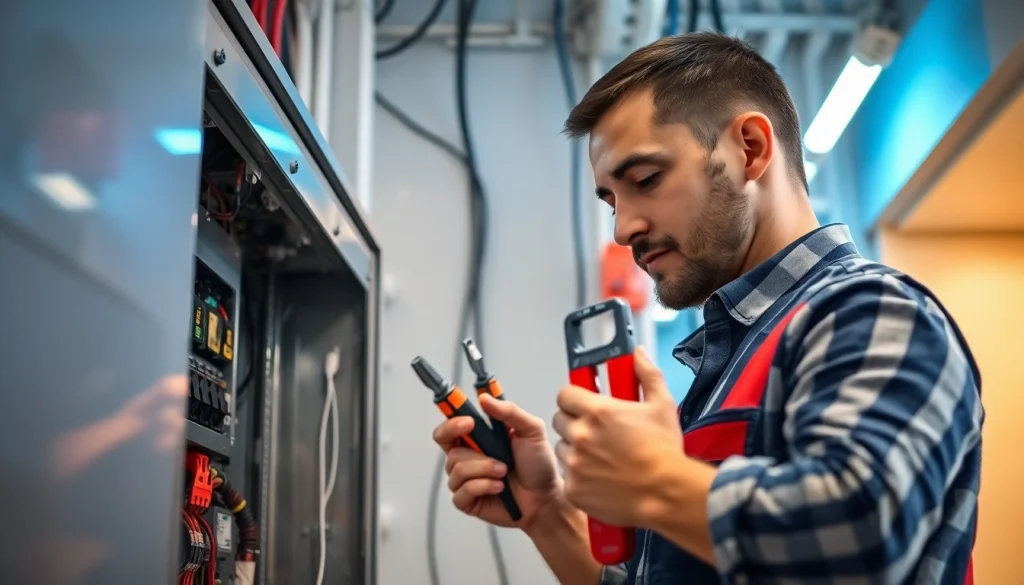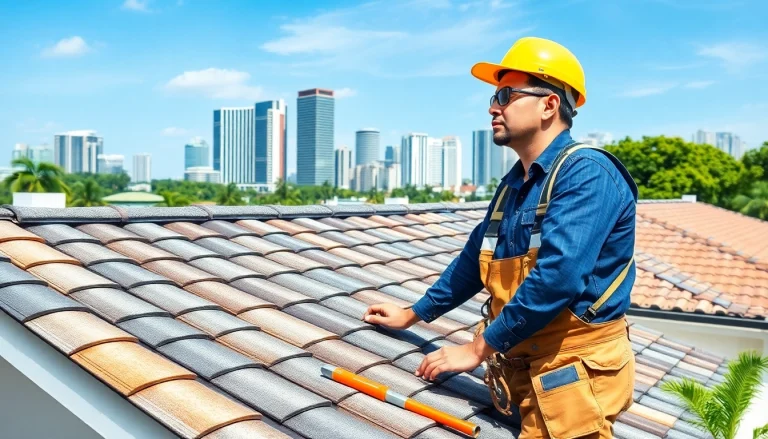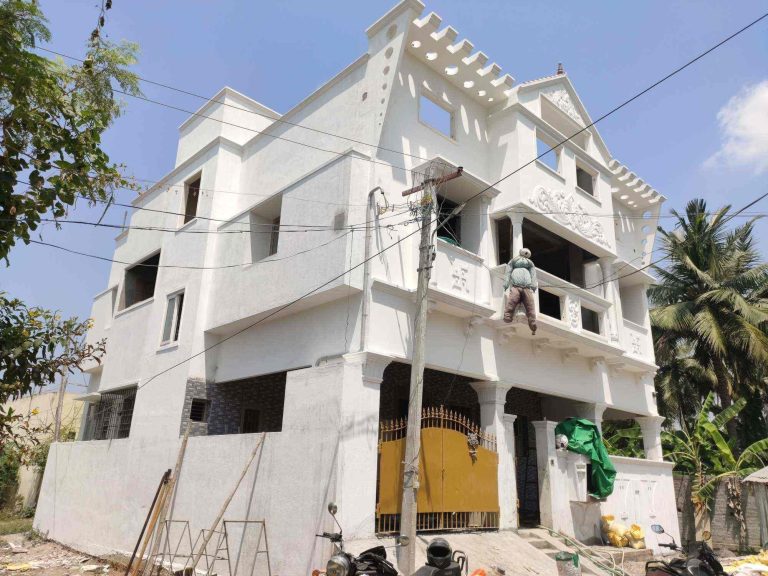
Understanding Electrical Panel Upgrade
The electrical panel is often considered the heart of a home’s electrical system, responsible for distributing electricity throughout the dwelling. As our reliance on electricity increases, so does the demand on our panels. An Electrical Panel Upgrade serves as a crucial improvement to ensure that homes can meet modern energy demands safely and efficiently. In this comprehensive exploration, we will delve into what an electrical panel is, the various reasons one might need to upgrade, and the signs indicating that your current panel may be out of date or insufficient for your needs.
What is an Electrical Panel?
An electrical panel, also known as a breaker box or distribution board, is a metal box housing the circuit breakers that manage the electricity supply to different parts of your home. This panel regulates the electrical current and ensures that your home receives a consistent flow of electricity, protecting it from overloads and faults. Understanding its components, such as circuit breakers, bus bars, and main disconnect switches, is essential for recognizing when an upgrade might be necessary.
Why Upgrade Your Electrical Panel?
Upgrading your electrical panel can significantly enhance the overall electrical infrastructure of your home. Here are key reasons why this upgrade is often essential:
- Increased Demand: As households add modern electrical appliances and systems (like home theaters, electric vehicle charging stations, and smart home devices), the demand for electrical capacity also increases.
- Safety Compliance: Older panels might not meet current safety codes. Upgrading can rectify safety issues, reducing the risk of electrical fires.
- Home Renovation: If you are renovating or adding new rooms to your home, an upgraded panel will ensure that your electrical system can support the additional load required.
Signs Your Electrical Panel Needs an Upgrade
There are several indicators that can suggest your electrical panel is in need of an upgrade:
- Frequent Circuit Breaker Trips: If your breakers are frequently tripping, it can indicate that your panel is overloaded and struggling to handle the electrical load.
- Burning Smells or Discoloration: Any signs of burning smells or heat emanating from your panel signify that it may be deteriorating and needs immediate attention.
- Old Technology: If your panel is over 20 years old, it’s advisable to consider an upgrade to keep up with current standards and technology.
- Low Amperage: Homes are typically supplied with either 100 amp or 200 amp panels; a lower capacity panel may not suffice for modern energy demands.
Benefits of Upgrading Your Electrical Panel
Understanding the benefits of upgrading your electrical panel can help you appreciate its importance in maintaining both the functionality and safety of your home environment.
Increased Electrical Capacity
One of the most significant benefits of upgrading your panel is the increase in capacity. Depending on your needs, it might be necessary to expand the amperage from 100A to 200A or even more. This additional capacity allows for more circuits and a higher degree of energy consumption, enabling multiple appliances to run simultaneously without the risk of overload.
Enhanced Safety and Code Compliance
Older electrical panels may lack the safety features found in newer models, such as surge protection and ground fault circuit interrupters (GFCI). By upgrading, you not only enhance safety through modern standards but also ensure that your system complies with current electrical codes, minimizing the risk of electrical hazards.
Future-proofing Your Home’s Electrical Needs
An upgrade can be seen as an investment in the future functionality of your home. As technology evolves and the demand for electricity increases — particularly with the rise of electric vehicles and renewable energy solutions — having a robust panel will allow homeowners to adapt without the need for frequent upgrades.
Costs Associated with Electrical Panel Upgrade
Understanding the costs involved with upgrading your electrical panel is crucial for effective budgeting. While various factors influence the overall price, it’s essential to know what to expect.
Breakdown of Typical Costs
The cost to upgrade an electrical panel typically ranges from $800 to $4,000, depending on several factors such as the amperage required, labor costs, and the complexity of the installation. Here’s a rough breakdown of expected expenses:
- Labor: Electricians generally charge between $50 and $120 per hour. The complexity of the job may require multiple hours of work, which can significantly add to the total cost.
- Panel Cost: The panel itself usually costs between $100 and $500, influenced by the size and brand. Higher amperage panels tend to be more expensive.
- Permits and Inspection: Most jurisdictions require permits for electrical work, which adds an additional cost (usually between $50 and $200).
Factors Affecting the Cost of Upgrades
Several factors can impact the cost of upgrading an electrical panel:
- Location: Labor rates can vary significantly by region. Urban areas tend to have higher labor costs than rural ones.
- Type of Panel: Different panels (e.g., main breakers vs. subpanels) come with various costs that can impact the overall budget.
- Condition of Existing Wiring: If the wiring is outdated or damaged, it may need to be replaced or upgraded, thus increasing the cost.
Potential Savings from Energy Efficiency
Beyond the initial investment, an upgraded electrical panel can lead to long-term savings through increased energy efficiency. Modern panels and breakers are designed to handle electricity more effectively, reducing wastage and potentially lowering utility bills. Additionally, upgrading efficiency might qualify you for local energy rebates or tax incentives, further offsetting the retrofitting costs.
Hiring a Professional for Electrical Panel Upgrade
When it comes to electrical work, particularly something as significant as an electrical panel upgrade, hiring a licensed professional is critical. A qualified electrician brings expertise, safety compliance, and peace of mind to the project.
What to Look for in an Electrician
Choosing the right electrician for your panel upgrade is vital to ensuring the work is done properly and safely. Here are some tips for selecting a professional:
- Licensing and Insurance: Always check that the electrician is licensed, insured, and bonded, providing protection against any potential liabilities during the work.
- Experience with Panel Upgrades: Look for electricians who have specific experience with panel upgrades; they will be familiar with local codes and best practices.
- References and Reviews: Seek testimonials or references from previous clients to gauge the reliability and quality of the contractor’s work.
Preparing Your Home for the Upgrade Process
Once you’ve selected an electrician, preparation is key to a smooth upgrade process. Ensure the following steps are taken prior to the work commencing:
- Clear the Area: Remove any items or furniture near the electrical panel to provide sufficient workspace for the electrician.
- Inform Your Household: Ensure everyone in the home understands that the electricity will be temporarily disconnected.
- Schedule Accordingly: Plan the upgrade for a time that minimizes disruptions to daily activities, ideally when household members are present to assist in communication with the electrician.
Common Questions to Ask Your Contractor
Having an open dialogue with your contractor can clarify expectations and increase satisfaction with the outcome. Important questions to ask include:
- What is your estimated timeframe for completing the upgrade?
- Are there any potential issues you foresee that might increase the cost or time required?
- What type of warranty or guarantee do you offer on your work?
Post-Upgrade Considerations
Once the upgrade is completed, a few considerations must be accounted for to maintain the integrity and functionality of your new electrical panel.
Maintaining Your New Electrical Panel
Regular maintenance is crucial to ensuring that your new electrical panel operates efficiently. Here are some maintenance tips:
- Visual Inspections: Periodically check the panel for any signs of discoloration, corrosion, or physical damage.
- Professional Upkeep: Schedule regular inspections with your electrician to assess the health of the electrical system and perform any necessary service.
- Load Management: Be mindful of the overall electrical load. If you notice frequent tripping, it may be time to reassess your power needs.
Assessing Electrical Needs for New Appliances
With the electricity needs of contemporary homes often increasing, homeowners must evaluate how new appliances may impact overall energy consumption. This evaluation should include:
- Understanding Appliance Ratings: Always check the amperage ratings for new appliances to ensure your panel can handle additional loads.
- Consulting with an Electrician: If adding multiple new devices, consult your electrician since numerous high-demand appliances (like HVAC systems) can necessitate further panel upgrades or adjustments.
Understanding Warranties and Guarantees
Most contractors provide warranties or guarantees on their work. It’s important to understand the details of these warranties, including coverage for parts and labor, what conditions must be met for the warranty to remain valid, and the process for submitting warranty claims. Having this information ensures you’re protected against unexpected issues that may arise following the upgrade.
In conclusion, upgrading your electrical panel is not just a home improvement project; it is an essential step in ensuring safety, functionality, and compliance with current technological demands and standards. By carefully considering the reasons, costs, and professional assistance required for an upgrade, you can make informed decisions that enhance your home’s electrical system for years to come.






